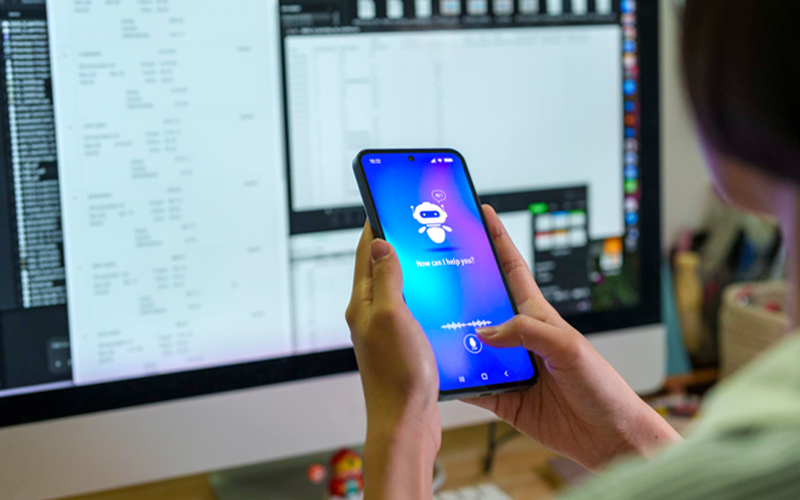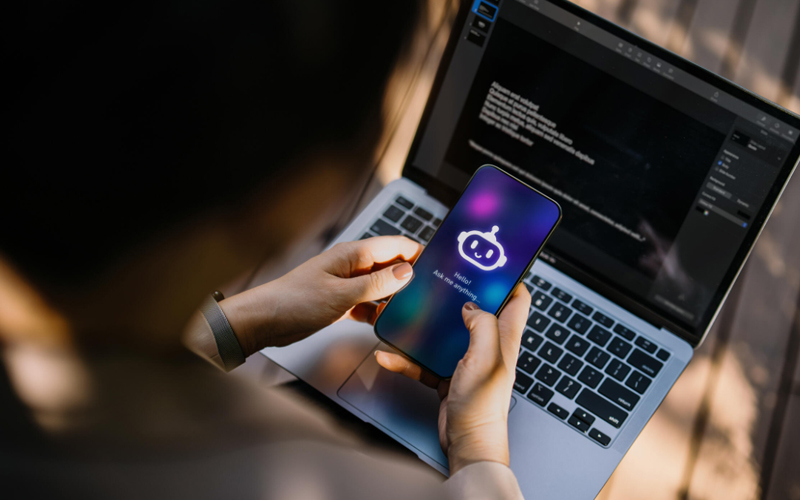2022 was a landmark year for AI with the release of applications such as ChatGPT, Lensa and DALL.E, which are generative AI applications. Traditional AI systems use pattern recognition, allowing for specific tasks to be performed intelligently, which is powerful enough. However, they do not create anything new, they just perform the tasks smartly, with a given set of rules and regulations. For instance, voice assistants such as Apple’s Siri and Amazon’s Alexa are based on the traditional AI model. On the other hand, generative AI (GenAI), as the name suggests, can create completely new content that is based on the training data that was fed to it. GenAI imitates the human creative process and can spew out different kinds of content – text, videos, images, music, code., etc.
GenAI going mainstream has been fuelled by two new developments – transformers and large language models (LLM). Transformers are a deep learning architecture that can transform one type of input into another type of output. Transformer models are so revolutionary that they have been labelled foundation models by Stanford. Large Language Models (LLM) are one of the most well-known and successful applications of transformers. “Language” is not just human language – for example, code is computer language, while proteins and molecular structures are the language of biology. Two of the most well-known applications based on LLMs are OpenAI’s ChatGPT and Google’s Bard. LLMs are creating ripples across the board. From virtual chat assistants, translation, drug discovery, and computer vision, to robotics and more, these models are expected to bring in a paradigm shift in AI, across all industries including healthcare, which stands to benefit tremendously from GenAI solutions.
How GenAI is catalysing healthcare
From mundane administration to the more exciting drug discovery and clinical trials, every realm in healthcare stands to benefit from GenAI solutions. Let’s look at a few key areas.
Boosting diagnostic capabilities: Applications can leverage GenAI to process both unstructured and structured data such as electronic health records, doctor’s notes, and medical test results, to arrive at or assist in faster and more accurate medical diagnosis. Both MedTech companies and research hospitals have jumped in to deliver GenAI medical diagnostics solutions. For instance, doctors at Beth Israel Deaconess Medical Hospital (Harvard University’s teaching hospital) have developed AI-enhanced microscopes to detect harmful bacteria such as E.coli in blood samples, at rates far higher than humans can. This can be used to detect deadly blood diseases. There are several other diagnostic solutions already out in the market that help to either detect or reduce errors in diagnosis – such as detecting cognitive impairments, cancer, and diagnosing brain tumours and strokes, to name a few.
Improving administrative efficiency: Administrative costs form a significant chunk of healthcare spend. According to a McKinsey report, the administrative spend in the US is about one-quarter of the total four trillion dollars spent on healthcare annually. Besides regular administrative costs, compliance with local and global regulations creates additional expenses. Healthcare claims often need to pass through several layers, leading to several transactions and communication points, each of which can prove to be a bottleneck. GenAI solutions can improve efficiency. For example, applications based on GenAI can read medical records and populate clinical registries, thereby letting staff work more productively. Oracle Cerner recently announced the integration of GenAI with its electronic health records (EHR) platform that lets clinicians verbally access EHRs, automates note taking, orders medications and schedules follow-up appointments.
Enhancing patient care and experience: Patient satisfaction is an important aspect of healthcare profitability. Patient experience can be improved by implementing GenAI solutions* for personalised care and solving operational problems such as emergency room scheduling and virtual medical assistants to name a few. Patients can interact with virtual assistants to check their own health information, schedule doctor’s appointments with voice commands, and ask for information about their treatment.
Speedier drug discovery: The biotech industry stands to immensely benefit from groundbreaking GenAI solutions such as drug discovery and precision medicine. Drug discovery has been a traditionally slow, tedious, and expensive process. However, GenAI solutions can accelerate the drug discovery process by generating new molecular structures with desired properties or optimising existing ones. AI can also predict the likelihood of the success of drugs, thereby speeding up clinical trials, and reducing the cost of research, time to market and the eventual cost of the drug.
GenAI solutions have the potential for a major transformation in healthcare. However, there is a critical need for oversight, especially in a sensitive industry such as healthcare. Extensive conversations around policy, ethics and privacy need to be had. As the industry looks towards innovating with AI, they must also protect against misuse of data and information, ensure equitable and appropriate use of AI and develop mechanisms that hold patient safety and privacy in the highest regard.
*For organizations on the digital transformation journey, agility is key in responding to a rapidly changing technology and business landscape. Now more than ever, it is crucial to deliver and exceed on organizational expectations with a robust digital mindset backed by innovation. Enabling businesses to sense, learn, respond, and evolve like a living organism, will be imperative for business excellence going forward. A comprehensive, yet modular suite of services is doing exactly that. Equipping organizations with intuitive decision-making automatically at scale, actionable insights based on real-time solutions, anytime/anywhere experience, and in-depth data visibility across functions leading to hyper-productivity, Live Enterprise is building connected organizations that are innovating collaboratively for the future.







